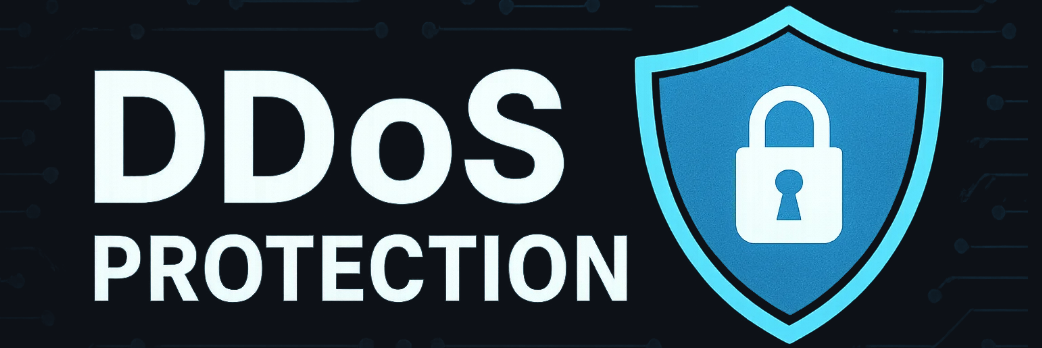A powerful and flexible DDoS protection middleware built for Elysia.js applications to defend your web services against both user-specific and distributed denial-of-service attacks.
- IP-based Rate Limiting: Automatically blocks users who exceed request thresholds
- Country-based Filtering: Prioritizes traffic from your main target country during attacks
- Global DDoS Detection: Monitors unique IP counts to identify and mitigate distributed attacks
- Persistent Storage: Uses JSON files to track banned IPs and request data across server restarts
- Highly Configurable: Customize all thresholds, timeouts, and protection behaviors
- Cloudflare Compatible: Works seamlessly with Cloudflare headers for accurate IP detection
- Debug Mode: Detailed logging to monitor protection activities in real-time
This project requires Bun as the JavaScript runtime. Bun is a fast all-in-one JavaScript runtime, bundler and package manager.
If you don't have Bun installed, you can install it with:
macOS, Linux, or WSL:
curl -fsSL https://bun.sh/install | bashWindows (using PowerShell):
powershell -c "irm bun.sh/install.ps1 | iex"Verify installation:
bun --version# Clone the repository
git clone https://github.com/ErenayFC/DDoS-Protection.git
cd DDoS-Protection
# Install dependencies
bun installRun the development server:
bun run devThe server will start at http://localhost:3000.
DDoS-Protection/
├── src/
│ ├── index.ts # Main application entry point
│ ├── config.ts # Configuration settings
│ └── middlewares/
│ └── ddosProtection.ts # DDoS protection middleware
├── data/ # Generated during runtime - stores JSON data
│ ├── users.json # User request data and ban information
│ └── uniqueIPs.json # Unique IP tracking for global DDoS detection
├── package.json
└── README.mdEdit the src/config.ts file to customize protection settings:
export const ddosConfig = {
limits: {
userRequestLimit: 25, // Max requests per user before rate limiting
userBanLimit: 100, // Threshold for extended ban
globalRequestLimit: 10, // Unique IPs threshold for global DDoS detection
userBanTimeout: 3600 * 1000, // User ban duration (1 hour)
userDataTimeout: 2 * 60 * 1000, // User data retention time (2 minutes)
globalDdosTimeout: 5 * 60 * 1000 // Global DDoS mode duration (5 minutes)
},
features: {
enableUserDdosProtection: true, // Enable/disable per-user protection
enableGlobalDdosProtection: true // Enable/disable global protection
},
messages: {
userDdosMessage: "Rate limit exceeded. Please try again in 2 minutes.",
globalDdosMessage: "We are experiencing high traffic. Please try again later."
},
paths: {
usersDataFile: "./data/users.json",
uniqueIPsFile: "./data/uniqueIPs.json"
},
fallbackIP: "1.11.111.1111" // Fallback IP for localhost/unknown IPs
};In src/index.ts, you'll find the main application that uses the middleware:
import { Elysia } from "elysia";
import { ddosProtection } from "./middlewares/ddosProtection";
const app = new Elysia()
.use(ddosProtection({
protectedUrls: ["/"], // Endpoints to protect
mainCountry: "TR", // Primary target country code
mainInfo: "We are experiencing high traffic. Please try again later.",
debug: false // Set to true for detailed logs
}))
.get("/", ({ ddosProtected, ddosStatus, banTimeLeft, uniqueIPs, options, set }) => {
// Handle user rate limit
if (ddosStatus === "USER_DDOS") {
set.status = 429;
return {
error: "Rate limit exceeded",
message: `Please try again in ${banTimeLeft} minutes.`
};
}
// Handle global DDoS attack
if (ddosStatus === "GLOBAL_DDOS") {
set.status = 503;
return {
error: "Service temporarily unavailable",
message: options.mainInfo
};
}
// Normal response
return {
message: "Hello world!",
protected: ddosProtected,
time: new Date(),
country: options.mainCountry,
activeConnections: uniqueIPs
};
})
.listen(3000);
console.log(
`🦊 Elysia is running at http://${app.server?.hostname}:${app.server?.port}`
);The middleware adds the following data to your request context:
{
ddosProtected: boolean, // Whether the current endpoint is protected
ddosStatus: string, // "NORMAL", "USER_DDOS", "GLOBAL_DDOS", or "ERROR"
banTimeLeft: number, // Minutes remaining on user ban (if applicable)
uniqueIPs: number, // Count of unique IPs in the current time window
requestTime: Date, // Timestamp of the request
options: object // Configuration options passed to the middleware
}- Request Tracking: Each request to a protected endpoint is tracked by IP address
- Rate Limiting: If a user exceeds the configured request limit, they are temporarily banned
- Country Prioritization: During attacks, traffic from the main country is prioritized
- Global DDoS Detection: When the number of unique IPs exceeds the threshold, global DDoS mode activates
- Persistence: All ban and request data is stored in JSON files for reliability across server restarts
For production deployment, you may want to:
- Set
debug: falsein your middleware configuration - Consider using a more robust storage system like Redis instead of JSON files (would require modifications)
- Use a proper process manager like PM2 or deploy with Docker
To test the DDoS protection:
# Run a simple test that simulates multiple requests
bun run testMIT
Contributions welcome! Please feel free to submit a Pull Request.
- Elysia.js - TypeScript with End-to-End Type Safety, type integrity, and exceptional developer experience. Supercharged by Bun.
- Bun - Bun is a fast JavaScript all-in-one toolkit|
- geoip-lite - A native NodeJS API for the GeoLite data from MaxMind.
Created with ❤️ by ErenayFC
